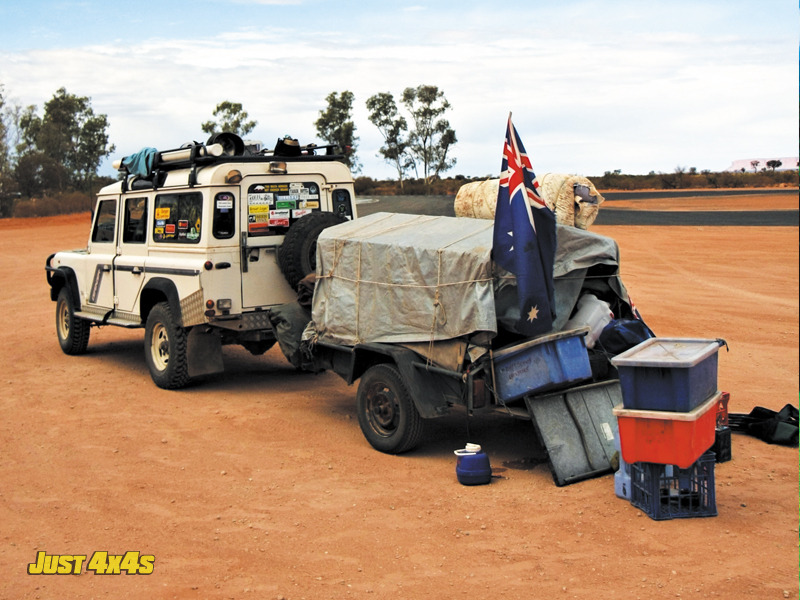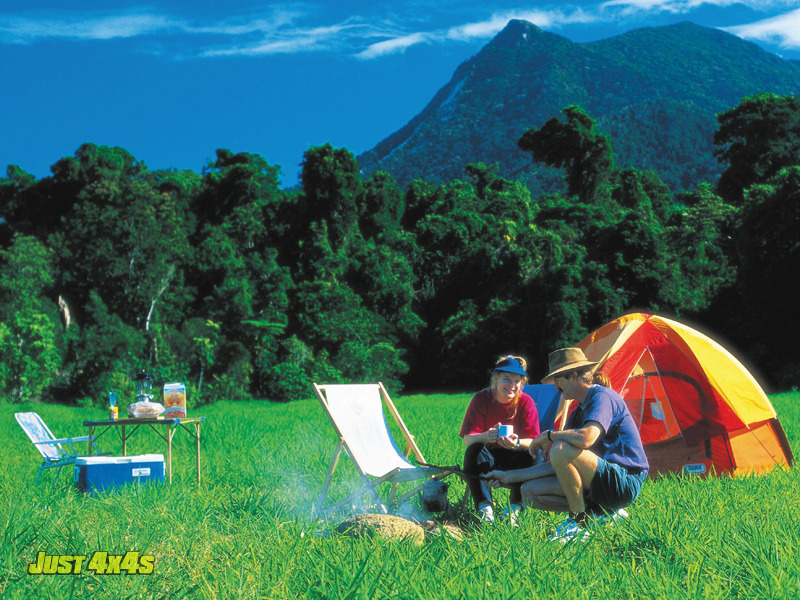Safe Camping Essentials
If you're heading out bush, preparation and common sense are the keys to safe camping so you can have a worry-free holiday in spectacular environments.
Packing Without 'Packing Yourself' - getting yourself and your group organised before you go
Karen Robinson, a seasoned camper from Brisbane, has a few simple and basic tips that she applies to every off-road adventure she takes, be it with family, friend or both.
The first is to have a range of camping boxes pre-packed with essential gear, so she can get away at the drop of a hat - without forgetting anything. Karen says the most common items people forget are tin-openers, mozzie spray, dunny paper, pillows and tent pegs, so these are part of the pre-packed kit.
"Everyone has their own backpack," Karen says. "We keep plastic boxes set up with everything we need like torches, ropes and tinned food. If it gets rainy and cold, we already have things prepared."
Cleverly, she also makes everyone in the group pack their own gear and first-aid kits, so they know exactly where everything is at all times.
Loading items as flat as possible can save space: "Pack things flat inside boxes so you can fit more in," Karen says. "I put frozen food inside zip-lock bags and pack it in flat."
On site, campfires have the potential to be disastrous, but Karen has a clever way to ensure campfires are contained and easy to extinguish - she uses an old washing-machine bowl to contain fires. "We then put a grill over the top for cooking on," she says.
If pets are allowed at your destination/campsite, Karen suggests the pre-packing extends to the dog's essentials, too, including the dog's bowl, food and bed. Always take extra water for pets, no matter where you're going.
When at the campsite, ensure pets don't cause a problem or disappear, with a few simple precautions.
"They are always on a lead, no matter where we are: I don't want them chasing native animals," Karen says. "I also hook them up on a running chain at camp."
Preparation, Fire Safety and Picking your Site
Parks Victoria spokesperson Sally Nowlan says the first thing to do before you depart for your camping holiday is to let others know where you are going. "If you are heading to remote places, you need to be self-sufficient and prepared," sally says.
Fire safety is a big issue, especially in the Summer months. Sally advises you check fire warnings for the region before you visit and leave early in high risk weather.
On site, check if camp-fires are permitted: "Rangers still come across fires that are too big or don't have a big enough cleared area around them," Sally says, adding that rangers also come across fires either left unattended or still alight after campers have left.
In some places, collecting firewood is illegal as fallen branches are wildlife habitats: "Use a fuel stove if you can as it's better for the bush," Sally says.
She also advises to set up camp away from the edge of lakes or creeks to protect fragile plant-life that filters the water. Soaps, detergents or toothpaste shouldn't be used in or near natural waterways.
"Empty any dirty water from washing up or cleaning a good distance away from any waterway," Sally added.
It seems like common sense, but your camp should never be set up in a dry river bed, as there may be flash flooding.
Similarly, while those large River Red Gums may offer tempting shade, don't set your tent up under them, as they can drop heavy branches without warning - campers have been killed this way. Sally says if you need extra shade or protection, string up large tarps instead.
Factor in weather changes in the gear you pack for your trip, as conditions can change dramatically. Don't rely on forecasts, check local conditions and pack warm/wet weather gear to cover these changes.
Finally, Sally adds that respecting other campers and the wildlife is important, too.
"Most campers are trying to escape the noise and hassle of urban living, so late night music and conversations should be at personal volumes, rather than for the whole camp-site."
Key Points for a better Camping Holiday
Check your state parks website for vehicle access and camping conditions. Print out the latest maps and take them with you. GPS units and mobile phone reception is not always reliable.
Test your gear before you go. You could have the latest and flashest equipment, but it'll useless if you don't know how to use it in an emergency.
Set up your new tent at home and test it for leaks. Check torch batteries and make sure your 4x4 recovery kit is complete. Take a battery-operated radio for emergency warnings.
Calculate how much water you will need - and double it. If you can take pets, don't forget to take extra water for them. Don't drink water out of creeks and rivers, as it could make you sick.
In cold weather, place hot water bottles in your bedding an hour before bedtime. In the heat, lie on wet towels and keep fluids up.
Lock your food in boxes and store it to prevent access by wild animals.
Keep your tent zipped-up during the day or it will fill up with insects.
Take a few garbage bags with you for wet clothes and dirty laundry.
Solar lights placed next to tent pegs and guy ropes can avoid tripping hazards. Choose different colours to ID different tents.
Give the kids tasks to keep them involved. Make sure toddlers carry ID tags in case they get lost.
Never drive beyond your skills. Choose safe and accessible tracks, and keep out of closed areas.
At night, keep essentials like torches and asthma medication handy
Avoid running noisy generators at night. which can disturb other campers.
Keep all these things in mind when camping, and your holiday getaway will run smooth for you and your fellow campers, too.










